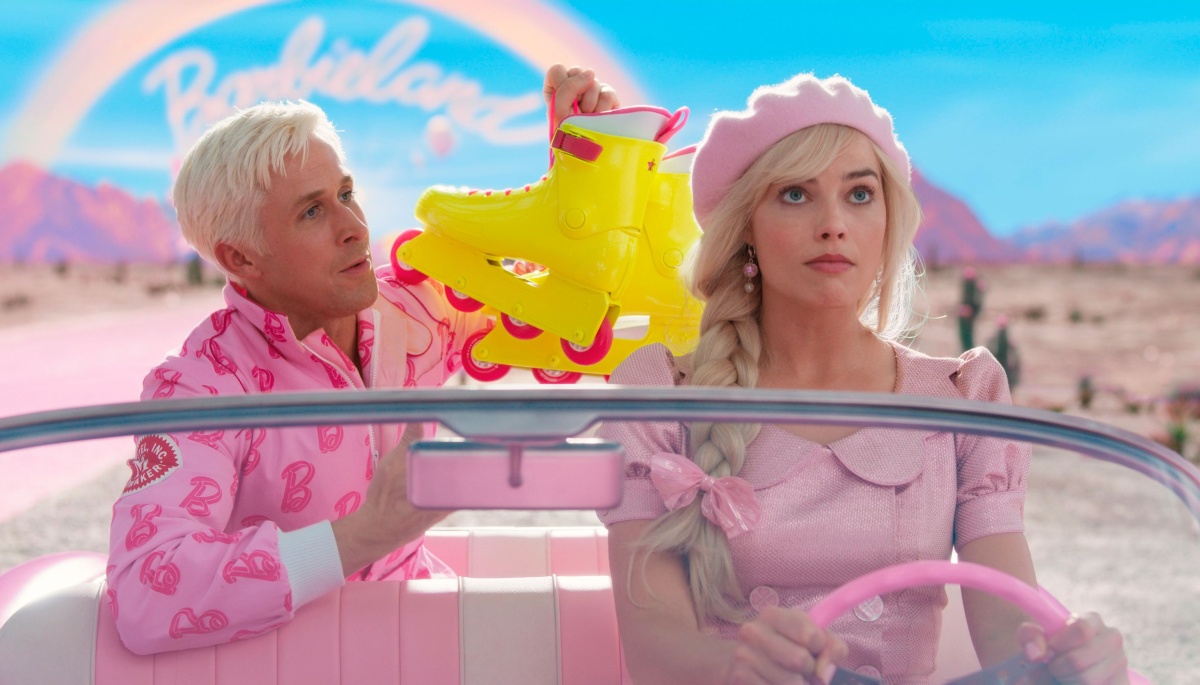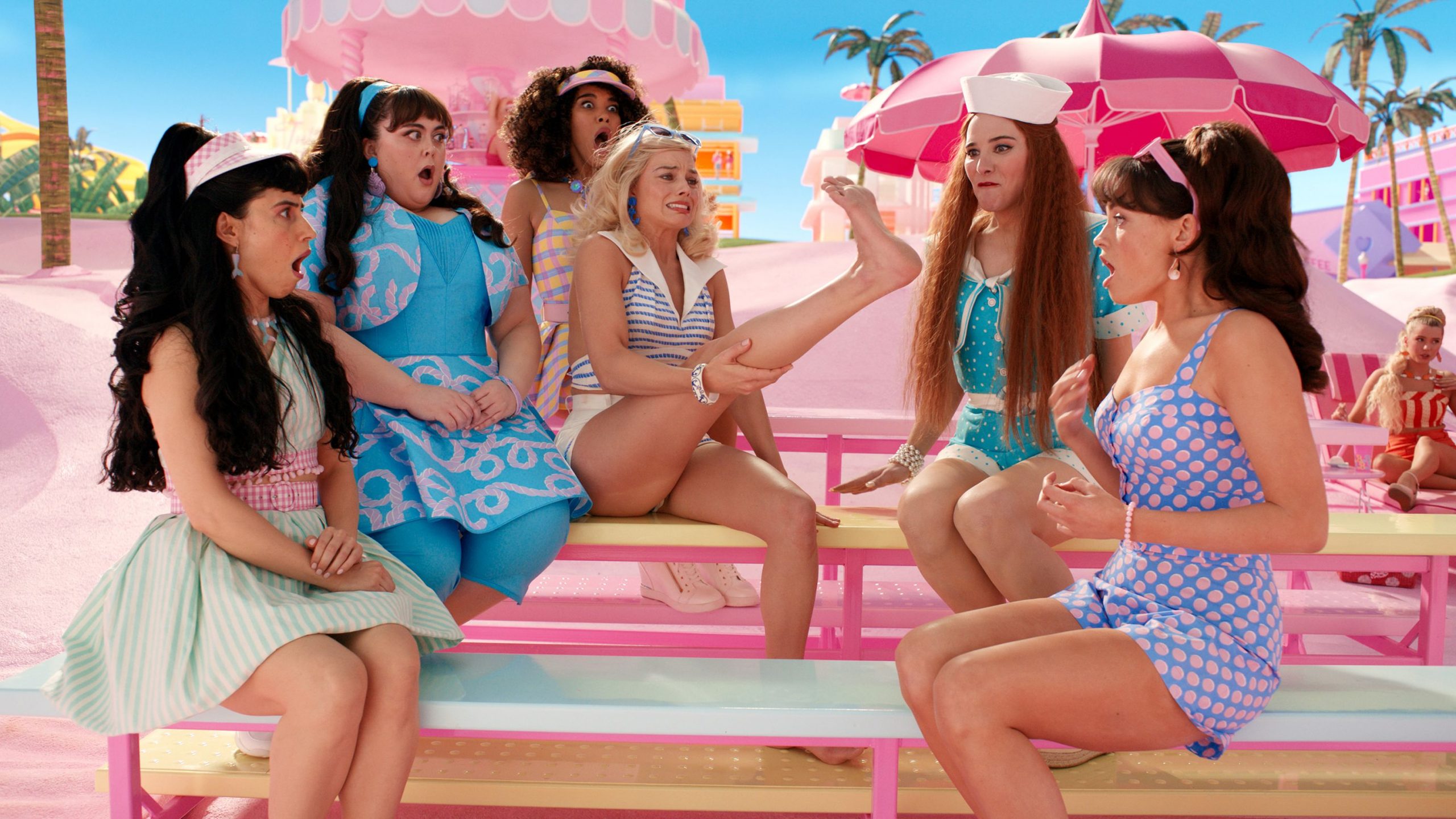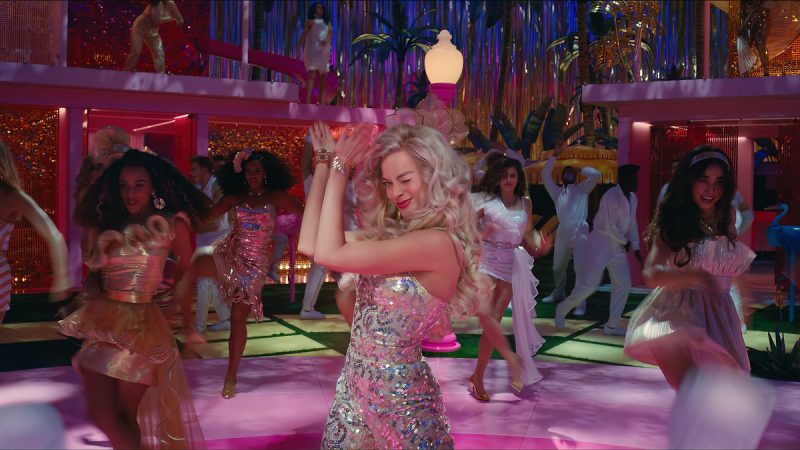Exactly a year ago, when it was announced that Barbie and Oppenheimer would be released on the same day, we were wondering how time would pass, but before we knew it, that day had already arrived, catching us by surprise while reading the Barbenheimer jokes. On the one hand, a dark and somber tale engulfed the world, while on the other, a realm of pink fairytales. However, upon the much-anticipated week’s arrival, one film, in particular, gained greater prominence due to the downpour of criticisms it received, and I am, of course, referring to Barbie. The internet is filled with literary detractors eager to bury the film, men who attended the movie accused of being “beta,” and those who publish reels playing hide-and-seek to not show they watched Barbie. Naturally, when a film receives such a barrage of criticism, it only heightens one’s curiosity. Being labeled as the standard-bearer of “woke” cinema, I watched the movie with great intrigue. I am not an opponent of the “woke” movement, but I do not hesitate to critique its extremes. Surprisingly, the film was not the exaggerated “woke” festival as some men had claimed; in fact, it managed to be quite sensible within its own context.
Let’s briefly touch upon the plot… In Barbieland, the classic Barbie, leading a happy and content life in her daily routine, starts to be plagued by thoughts of mortality. The solution lies in venturing into the real world to find the girl who plays with her. Barbie, accompanied by Ken, embarks on an adventure into the real world, which causes troubles back in Mattel. While trying to comprehend the real world, Barbie also searches for the unhappy girl who used to play with her. Meanwhile, Ken is preoccupied with wandering about and discovering the patriarchal system he could never experience.

First and foremost, I’d like to focus on the technical aspects of the film. I cannot claim it to be a magnificent film in technical terms; it’s not a film that deserves praise in every aspect. However, its Space Jam-like childish and absurd elements were enough to transport me back to the 90s. While I don’t entirely agree with Ryan Reynolds’ astonishing declaration of “the best script I’ve ever read,” the film maintains its momentum throughout and effectively delivers its message from start to finish. As for the set design, there’s nothing to criticize. Barbieland is simply splendid. Nostalgic details related to Barbie and Ken were brilliantly incorporated throughout the film. Especially as someone who grew up in the era when Barbie, Ken, Bratz, and even Action Man were popular, the film’s nostalgic power managed to satisfy me.
Let us delve into the spiritual aspect of the film. Barbie’s most significant achievement lies in annoying all insecure men. Over the past 20 years, women asserting their independence in every domain has greatly unsettled certain men who have grown accustomed to holding dominion from their seats of power. What we refer to as “woke” is a movement built upon creating space for and elevating marginalized groups to achieve equality on screen and in life. This elevation and spotlighting can sometimes be excessive, and I am always opposed to excess. However, I do not believe that Barbie’s approach crosses into the realm of excess. After watching the film, I understand that some men have been uncomfortable with the rising power of women being thrust into their faces.
The fundamental message of the film is quite simple. Barbie conveys the message to women, “You can be anything you want to be.” In other words, in a male-dominated world, if you strive, you might become the person you desire to be. The film portrays, in a straightforward manner, that the patriarchal society is losing its grip, and women are beginning to live their own lives. It employs repetitive phrases and a touch of 90s naivety to convey this idea. The scene where all characters come together, engaging in eye-opening conversations and confronting one another, epitomizes the cinema of the 90s. As women declare their independence, men are attempting to come to terms with this reality. While the characters in the film may have resolved their issues, it seems that those outside the screen are still struggling to do so.

We must acknowledge a certain truth. This world has been governed by men for thousands of years. During our hunter-gatherer days, the reason for women falling behind due to pregnancy eventually transformed into a culture, and the men who had developed themselves externally combined their accumulations with brute force, becoming the dominant gender. For millennia, men have ruled the world with an iron fist. Men have been responsible for confining women to the home, depriving them of education, and degrading them to mere breeding machines instead of treating them as human beings. The time has come, and is passing, for us to accept these realities. Even in 2023, some men are still burning with a medieval mindset, unfortunately, unable to accept our progress. These insecure men, who still harbor dreams of dominance even while seated with their beers as if it were the 1950s, naturally feel uncomfortable when they watch films like Barbie that carry a prevailing message.
I am generally opposed to the excessive aspects of the “woke” ideology, especially when it comes to Netflix and Amazon series, such as unnecessary ideas like turning Gandalf into a woman. However, I do emphasize the importance of conveying certain messages and including various cultures. For this reason, films like Barbie do not bother me. Besides telling its story, it does not exhibit any extremes. Throughout the 128-year history of cinema, we have witnessed movies that men have made from their own perspectives. It is high time we watch films made from a biased female perspective. We live in a free world, and everyone is entitled to make films from their own point of view. Let me emphasize this again: the film does not present anything new other than conveying what already exists in our current times. In fact, this very portrayal of reality seems to disturb men.
In summary, Barbie managed to amuse and delight me, a child of the 90s, with its narrative style and nostalgic content. The film also allowed me to watch many talented actors, showing me how deadly Margot Robbie’s smile could be. Greta Gerwig’s portrayal of modern-day women who are becoming more liberal and establishing their own independent lives is understandably discomforting for some men and women who find comfort in male-dominated societies. Not surprising at all. Despite my difficulty in labeling it as “woke,” the film skillfully narrates the rise of women through the lens of 90s naivety, leveraging Barbie as the symbol of that era. I did not have high expectations from the film, but if you are not seeking the meaning of life or indulging in masculinity by fantasizing about men launching penis-shaped bombs in other countries, then Barbie is a film that I believe will entertain and delight you.

Cast & Crew
director: Greta Gerwig
writers: Noah Baumbach, Greta Gerwig
starring: Margot Robbie, Ryan Gosling, America Ferrera, Kate McKinnon, Michael Cera, Will Ferrell, Issa Rae, Alexandra Shipp, Emma Mackey, Helen Mirren, Simu Liu, Kingsley Ben-Adir
USA | 2023 | 114 MINUTES |
